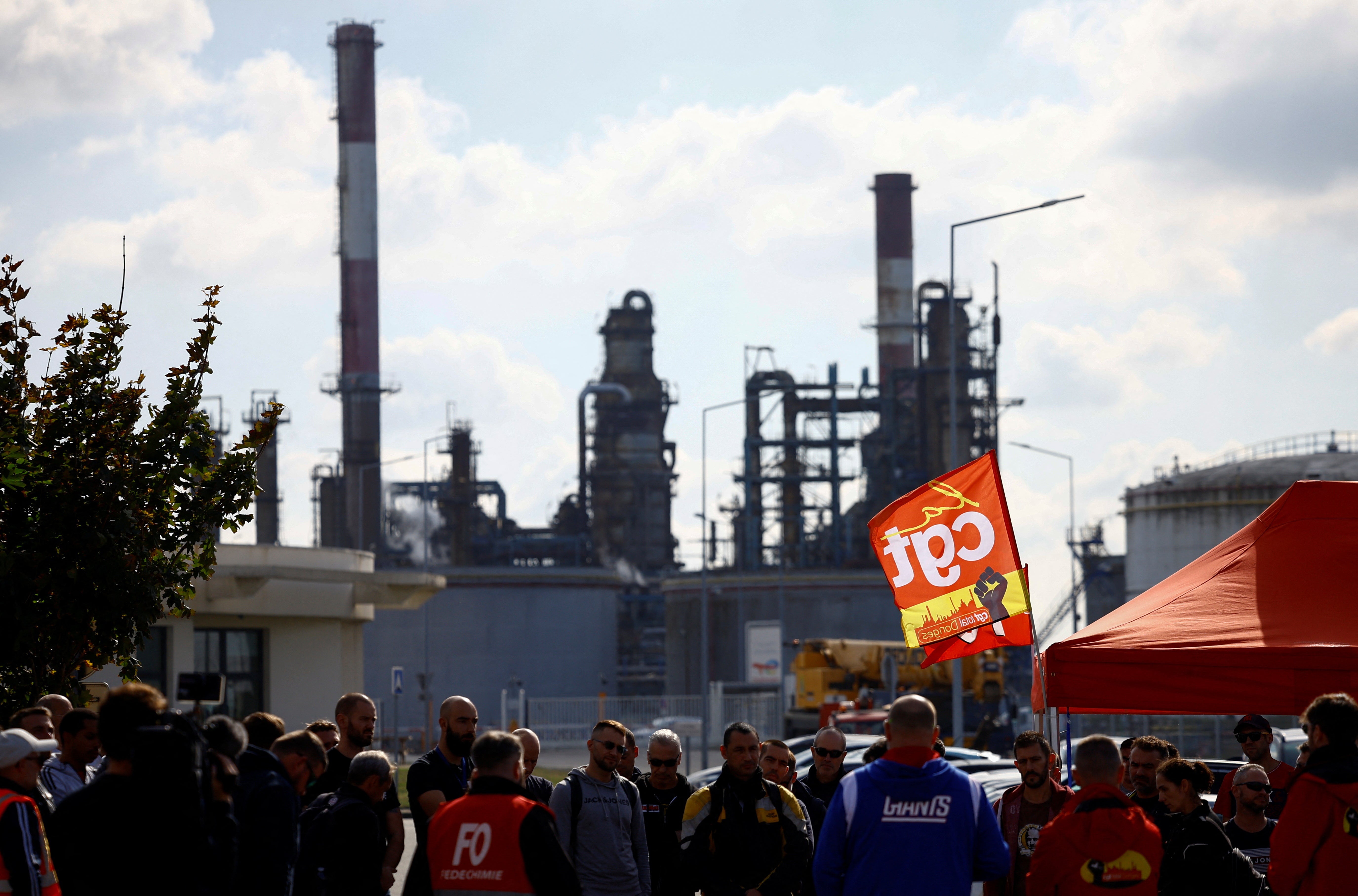
French oil workers have voted to continue a strike which caused shortages at fuel pumps across the country.
France’s prime minister Elisabeth Borne angered strikers by taking the drastic measure of ordering some of them to return to work to ensure that service stations can continue to operate.
Six of France’s seven oil refineries have been closed in the three weeks of the strike so far and the governmment said that about 30 per cent of the country’s petrol stations are experiencing temporary shortages with at least one or more type of fuel.
Long queues have formed at some stations, while parts of France have begun rationing stocks. Paris and northern France are the worst affected regions.
Workers are requesting 10 per cent pay increases: seven per cent to cover the cost of living and three per cent for “wealth sharing”.
Ms Borne ordered a requisition of workers at Esso petrol depots and is expected to do the same for others if talks between unions and management do not start quickly.
Requisitions allow authorities to order a small number of workers at depots – fewer than 10 according to regulations – to return to work to ensure essential shipping services. A similar measure was imposed in 2010 oil refinery strikes.

“We remain extremely vigilant,” French government spokesman Olivier Veran said at a speaking at a Dunkirk depot of TotalEnergies on Wednesday.
“If the blockade persists, we won’t rule out imposing the same [requisitioning] conditions” at other refineries in northern France “to ensure a speedy release of fuel supplies and a return to normal.”
The government’s requisition measure comes two days after a deal was reached between two unions and Esso’s leadership over a pay rise. Yet the hardline CGT union has rejected it and said it would challenge the requisition in court.
A call from the CGT for support from workers of other sectors appeared to have had some success after a representative of the FNME union said some staff at EDF’s nuclear plants had resumed a strike over wages.






